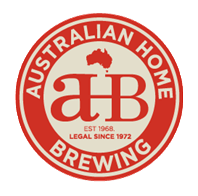Hard Ginger Beer (Alcoholic)- How to make a batch of Home made Ginger beer

Learn how to make hard ginger beer at home with this easy 4.5% ABV recipe - click through for more details to get you started .
Looking to make your own hard Ginger Beer at home? This easy-to-follow recipe yields a semi sweet Alcoholic Ginger Beer with about 4.5% ABV (alcohol by volume). It's the perfect fizzy and spicy homemade brew for summer sipping or holiday cheer.
You can adjust the sweetness to your liking by modifying the lactose content or remove it entirely for a dry version. Let's dive into the recipe, ingredients, and step-by-step instructions to help you start brewing today.
This recipe makes a semi-sweet alcoholic ginger beer of about 4.5% strength. You can vary the sweetness by varying the amount of lactose in the recipe or make it dry by leaving the lactose out altogether (see notes)
Ingredients:
• 2kg glucose/dextrose *
• 500g malt extract *
• 500g lactose *
• 100g to 200g crushed or grated fresh ginger (vary to suit your own taste)
• Up to 4 lemons, sliced or chopped fine including peel (optional)
• 5g yeast nutrient *
• 1 sachet SAFale yeast *
Equipment:
-
Bottles (20 litres' worth – beer or screw-top soft drink bottles)
-
Priming scoop for sugar
-
Homebrew sterilizing compound ( brewclean)
-
Fermentation lock and airlock setup *
Step-by-Step Instructions: Brewing Hard Ginger Beer
Follow this method to make fizzy, alcoholic ginger beer at home:
• Heat 5 litres of water then add glucose, malt, lemons & ginger & simmer for 20 minutes.
• Sterilize your fermenter according to directions on the sterilizing compound.
• Add about 12 litres of cold water into your fermenter. Pour the hot mixture through a straining bag (available at homebrew suppliers) into the fermenter.
• Top up with cold water to the 22 litre mark add the yeast nutrient & stir well.
• Make sure the temperature is 30C or less & add the yeast, fit a fermentation lock in the lid of the fermenter & half fill it with water.
• The fermentation should start within 24 hours although it usually ony takes a couple of hours to start. When it starts, bubbles should be rising through the ginger beer & stream through the water in the airlock.
• Allow the ginger beer to ferment until it stops then allow it to settle & clear for 48 hours.
• Use a priming scoop (available from homebrew suppliers) to add a measure of sugar to each bottle.
• Fill the bottle to about 50mm from the top then seal it firmly with a crown seal or screw cap.
• Store these bottles in a warm place for a week or 2 to allow them to condition (become fizzy). They will now be ready to drink.
Note that - of course you can vary the quantities of lemons & ginger to suit your own taste.
You can't use sugar or glucose to sweeten a bottle fermented drink like this because it will cause the bottles to explode. This ginger beer is sweetened with lactose which is a non-fermentable sweetener. You can add more or less lactose to suit your own taste. As a rough guide, lactose is about half as sweet as sugar.
FAQ HOW TO MAKE HARD GINGER BEER AT HOME
Q: What is the alcohol content of homemade ginger beer?
A: This recipe produces an alcoholic ginger beer with approximately 4.5% ABV. You can adjust the strength by modifying sugar and fermentation time.
Q: Can I make hard ginger beer without lactose?
A: Yes, leaving out the lactose will produce a drier ginger beer. Lactose is used as a non-fermentable sweetener and doesn’t affect carbonation.
Q: Why can't I use sugar to sweeten bottled ginger beer?
A: Adding sugar for sweetness after fermentation can cause over-carbonation or exploding bottles. Use lactose instead—it’s non-fermentable and safe.
Q: How long does homemade ginger beer take to carbonate?
A: Once bottled, it typically takes 1–2 weeks in a warm place to condition and become fizzy. Store refrigerated after conditioning.
Q: What type of yeast should I use for ginger beer?
A: SAFale yeast is recommended for a clean fermentation and reliable carbonation. It's ideal for most hard ginger beer recipes.
Q: Can I use plastic bottles for bottling?
A: Yes, screw-top soft drink bottles work well. Just check they’re clean, sanitized, and rated for carbonation pressure.
